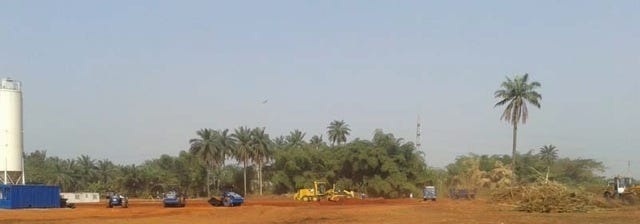- Blog
- Sustainable Economic Systems
- International Sustainable Finance
- OPIC: Financing for the sake of development or corporate welfare?
OPIC: Financing for the sake of development or corporate welfare?
by Kate DeAngelis, International Policy Analyst

Donate Now!
Your contribution will benefit Friends of the Earth.
Stay Informed
Thanks for your interest in Friends of the Earth. You can find information about us and get in touch the following ways:
The Overseas Private Investment Corporation provides financing to projects in the name of helping countries develop. The problem is that often these projects seem to help large corporations more than the average person in the developing world. Too often local communities bear the brunt of the environmental and social impacts of projects that come into their community with little consultation, let alone consent. Meanwhile, U.S. companies receive taxpayer dollars to support their business ventures abroad in a way that often seems more like corporate welfare than development finance.
One small tool to help protect these communities is a policy that forces project developers to consider environmental and social issues. Just having these policies on the books is insufficient. These policies must be rigorous, demanding strong measures to protect local communities and the environment. OPIC is currently revising its environmental and social safeguard policies. In response, Friends of the Earth along with other environmental and development organizations sent OPIC a letter urging it to make the following improvements to its policies:
1. Stronger environmental and social risk identification and management
OPIC does not ensure the robust identification, management and monitoring of environmental and social risks and impacts. OPIC must identify the project-level human rights risks and the cumulative environmental and social impacts of projects across their life-cycle. One important aspect is the lifetime emissions of greenhouse gases, such as methane and carbon dioxide. The climate impact of energy development projects can be huge. Unfortunately, fossil fuel projects, especially natural gas projects, often greatly underestimate their greenhouse gas emissions, especially methane. Therefore, OPIC must accurately identify the risk of these pollutants to protect communities that are often disproportionately impacted by the effects of climate change.

2. Better engagement with local communities and civil society organizations
Making sure local communities are involved and consulted throughout the project life-cycle is essential to ensuring that OPIC is fulfilling its development mandate. Neighboring communities have been overlooked in this process and negatively impacted by OPIC-financed projects. For example, Buchanan Renewables biomass project in Liberia resulted in serious human rights, labor and environmental abuses, including sexual abuse by company employees of local women. As a result, OPIC should strengthen its process for engaging civil society organizations, require meaningful informed consultation with local communities, and monitor and disclose that it is properly adhering to these requirements.
3. Improved benefits, including energy access, to communities
Consistent with its development mandate, OPIC-finance projects must provide tangible benefits to neighboring communities. Many of OPIC’s current projects fail this test. For example, the Azura-Edo natural gas project in Nigeria will add plenty of air pollution, but not much electricity for local communities. Moreover, they fail to use the best available technology, choosing the dirtier open cycle turbines over closed cycle. The majority of the Nigerian population (and most notably the country’s poor) are not connected to the national grid. The government plans to extend the grid have been subject to long delays and serious cost overruns. The Azura-Edo project does nothing to correct these problems. For energy development projects, emphasis should be placed at an early stage on extending the grid or creating new mini- or off-grid energy to increase access to affordable, reliable, sustainable energy for those people without energy access, especially in rural areas.
4. Consideration of renewable energy alternatives
Despite the requirement to consider project alternatives, OPIC’s environmental and social assessments often fail to be meaningful, comprehensive alternatives analyses. It is not unusual for an energy project assessment to overlook renewable energy alternatives, even when solar and wind resources are readily available. A robust assessment would often find renewable energy to be in the best interest of the local communities. When you consider the full environmental, health and social impacts of a project like a natural gas plant, distributed renewable projects will often make more financial and social sense.

5. Greater transparency and accountability
OPIC currently does not publicly disclose all relevant policies, procedures, guidelines or project-related documentation that are necessary to determine if OPIC is complying with environmental and social safeguards best practice and if OPIC is fulfilling its development mandate. OPIC should publish all monitoring reports on environmental, developmental, worker, human rights and economic effects for each investment supported.
In addition to a lack of transparency, OPIC has weakened the ability of impacted communities to hold it accountable. OPIC’s Office of Accountability has been vacant for more than a year, meaning that project-affected people have had no way to address grievances or oversee OPIC’s financing in a way that is independent of OPIC management. This important office improves development impacts by providing project-affected people with the opportunity to file complaints against OPIC-financed projects and has the potential to provide remedies. Without it, local communities have few options to have their voices heard and grievances addressed.
